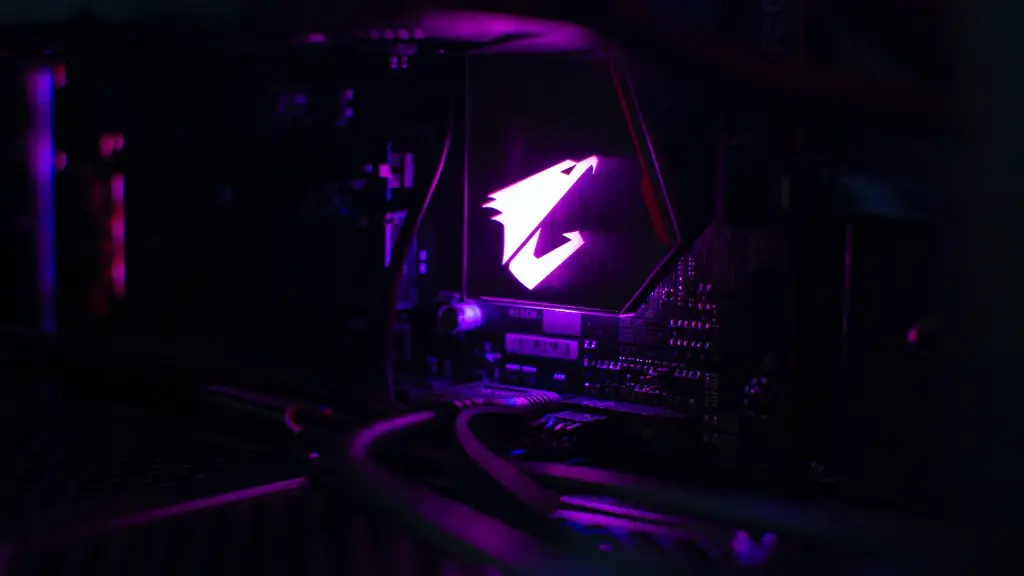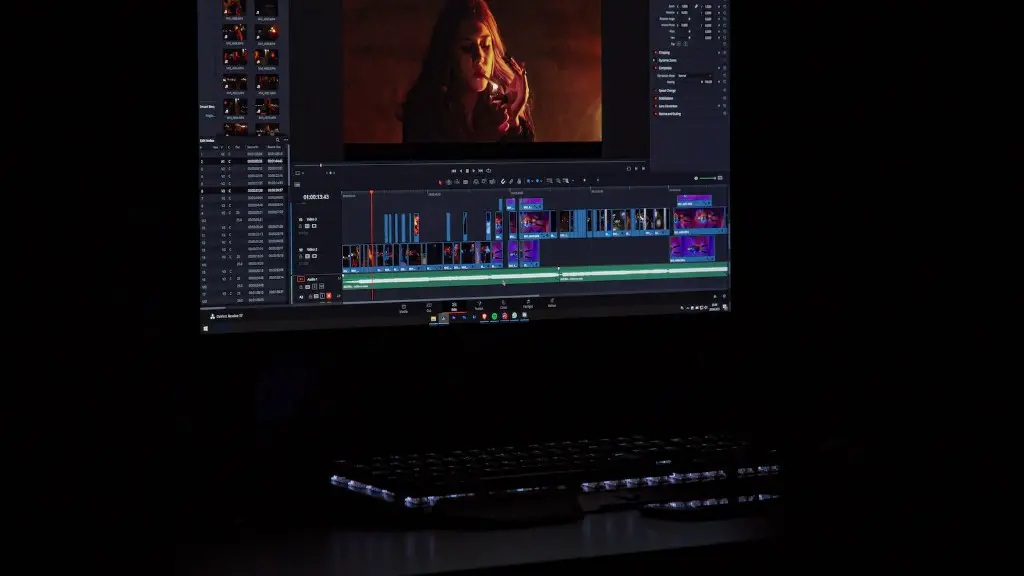Staying on top of your gaming PC’s performance and maintenance requirements is essential for a smooth gaming experience. For gamers, there’s nothing worse than enduring lag or having a game crash mid-session. Here are some important tips on how to keep everything running smoothly.
Cleanliness is key. Dust and debris can accumulate inside your PC and create more heat than necessary, negatively impacting your gaming performance and potentially damaging sensitive components. Every couple of months, take the time to use a clean air can to get rid of dust buildup, and use cotton swabs or a damp cloth to wipe down the surface of the system.
Upgrade components accordingly. As newer titles release, many gamers like to update their PCs to keep up with the changing landscape. Make sure to check the recommended requirements and upgrade memory, graphics cards, processors, and cooling respectively. This will keep your system running faster and smoother.
Keep your graphics card updated. As games and their graphics become more demanding, having an updated graphics driver is essential for harnessing the graphics card’s full performance when gaming. Make sure to check for updates every couple of months.
Back up your game saves. Whether you’re storing your game saves on separate drives or the cloud, ensuring that they are backed up regularly can restore your gaming experience in the event of any system malfunctions or data loss. Additionally, if you’re ever transferring a game onto a new system, you won’t have to rebuild your game with a new save.
Keep your PC cool. Overheating can cause loss of performance, random crashes, and permanent hardware damage. Ensure that your system is positioned in a well-ventilated area, so that it can draw in cool outside air. Additionally, purchase a cooling pad or fan to get extra assistance if needed.
Update Windows. Frequently updating Windows keeps your drivers and programs up-to-date, as well as potentially bringing in new fixes for games or optimizations for your hardware. Make sure to turn off automatic updates for games or programs that don’t need to be automatically updated.
Diagnose For Errors
If you’re having gaming issues, you may need to diagnose for errors. First, check the resources your system is utilizing while gaming, to ensure everything is running optimally. This includes your CPU, GPU, RAM, storage, and network. Also consider how your system is configured. If you’re running games in windowed mode at lower resolutions, you may benefit from switching to fullscreen mode and/or adjusting resolutions.
Subsequently, check to see if the problem is related to a single game you’re playing. If so, you may need to launch the game in compatibility mode, or launch the game as an administrator. Additionally, if your game has any updates or patches, make sure to check for those as well.
Finally, as a last resort, you may even have to uninstall and reinstall the game. If the issue is stemming from a corrupted installation, this should usually fix it. Be sure to back up any saved files associated with the game, so you don’t lose progress.
Use A Balanced Power Supply
Using a balanced power supply for your gaming PC is another good way to give your system a performance boost. A balanced power supply helps regulate the power going into your system and provides it to the necessary components when they need it. This helps reduce system noise and can even prolong the lives of your components.
Additionally, using quality power strips and surge protectors can help protect your system from any sudden outages or surges. Consider investing in a power supply with voltage regulation capabilities and that’s riser cable-friendly, as newer graphics cards require more power and safer cabling.
Be Aware of Cybersecurity
When it comes to gaming PCs, cybersecurity threats are something that should not be overlooked. Ensure that your system has an updated antivirus solution that’s set to scan your system regularly. Be wary of malicious emails and websites, and when downloading updates for your games make sure it’s from a legitimate source.
Furthermore, use strong passwords or two-factor authentication for both your system and for any accounts used for gaming purposes. If other members in your household are also gaming, have them use their own accounts on your system, rather than sharing the same account.
Monitor Bandwidth Usage
Especially if you’re playing games online, you should make sure to monitor your bandwidth usage. Games can be bandwidth intensive, and if too many systems are connected in the household, everyone’s gaming experience can suffer. Additionally, be aware of background activities, such as automatic downloads or large file transfers, that could be taking up bandwidth.
When gaming, try disabling any unnecessary background applications or services. Also have a look at your router’s settings and prioritize your gaming system above other systems that are connected. This can make sure that your system has enough bandwidth for smooth gameplay.
Choose The Right Games
Finally, make sure to choose the right games that are optimized for your system. If a game is too old or too new, your system may not be able to run it properly. Additionally, never pair fewer resources with more demanding titles. In some cases, this can lead to serious issues with your system. Before getting each new game, make sure to double check the recommended and minimum requirements.
Keep an eye out for any recommended driver updates or patches too. These can optimize the game’s performance, while also providing any bug fixes or compatibility issues that it may have.
Test Out Settings
Finally, for the most optimal performance, you’ll want your graphics and display settings to be just right. Try testing out different settings for a few minutes in order to get the most out of your hardware, from resolution and refresh rate, to texture and mesh quality, to motion blur and anti-aliasing. If you’re unsure of what settings give you the best performance versus visual quality, then you can turn to various online forums or guides for advice.
In conclusion, there are many ways to maintain the health and performance of your gaming PC. Cleanliness, regular upgrades, backing up, and using a balanced power supply will help you sustain a steady performance. Additionally, by staying aware of cybersecurity threats, monitoring your bandwidth, and selecting the best games and settings, you’ll ensure that you and your gaming PC remain in top form.

